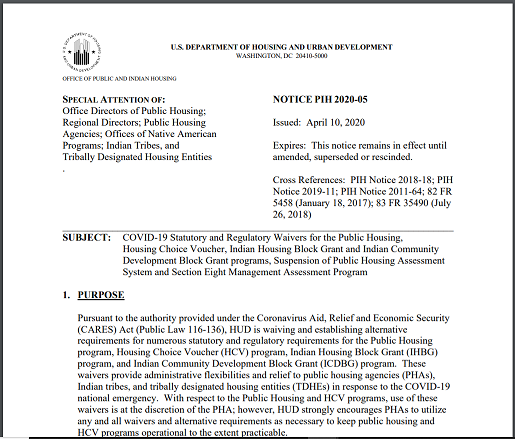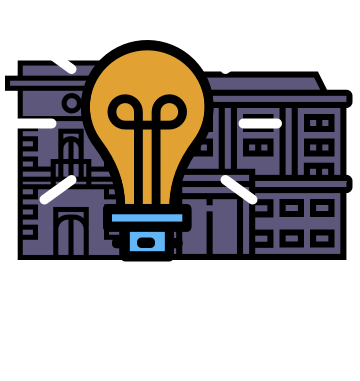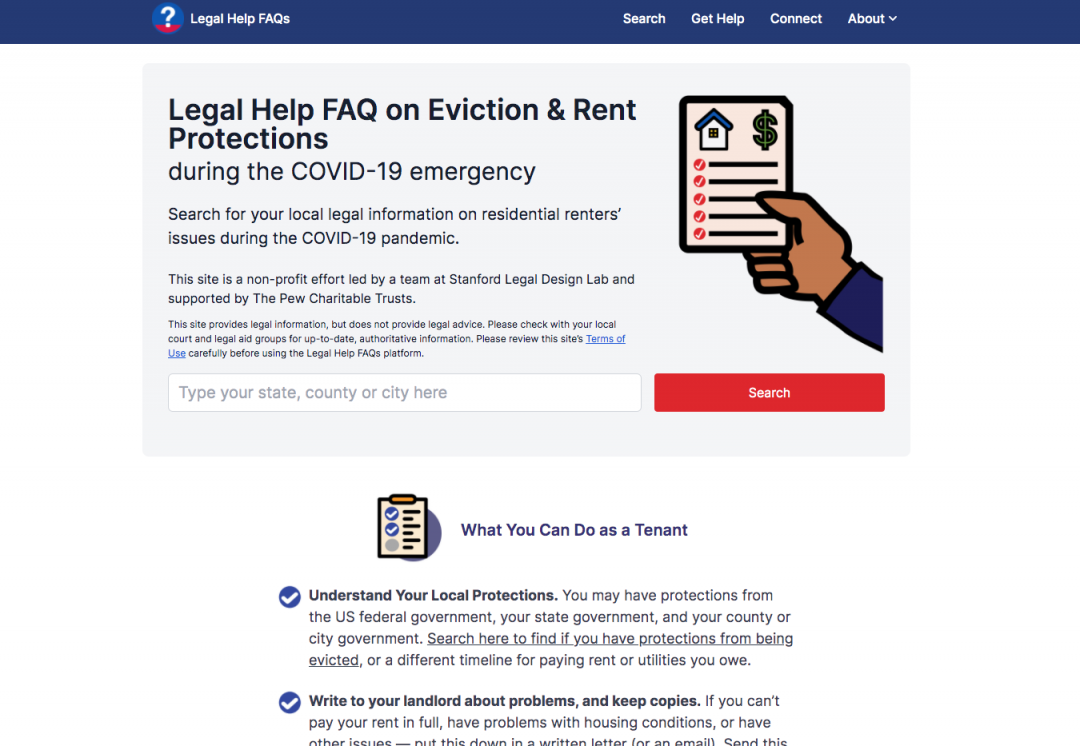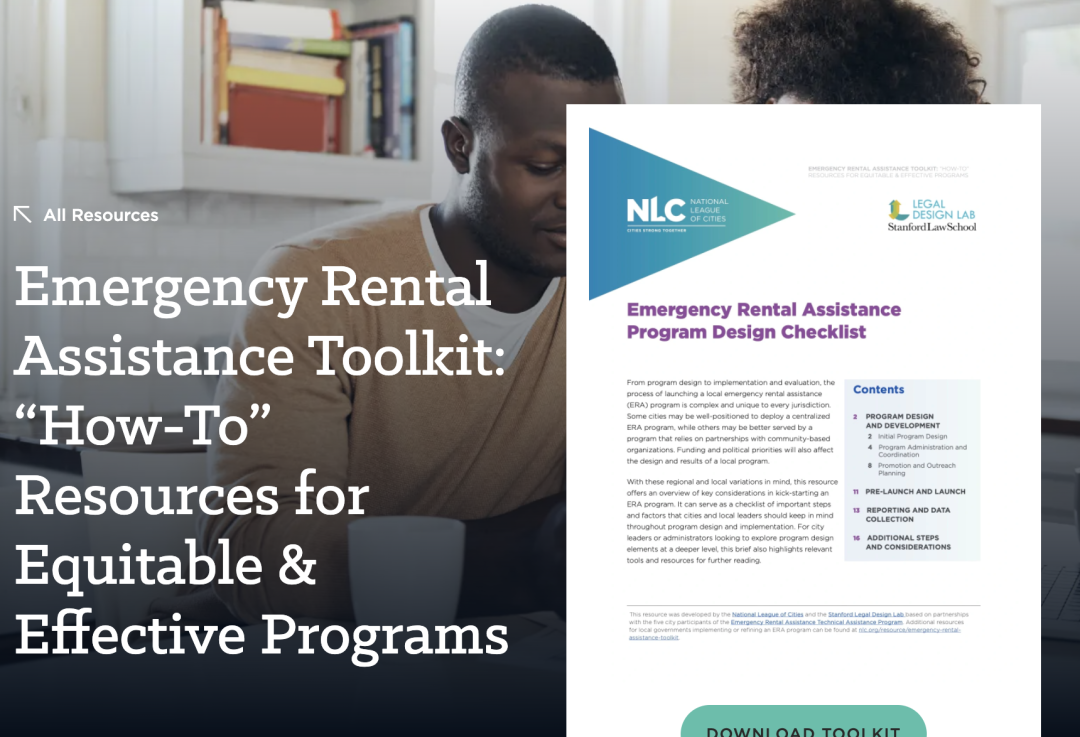Basic Information
After the COVID-19 emergency began in mid-March 2020, US Congress responded with new eviction-oriented policies for renters living in public housing (as well as renters who receive federal housing vouchers and subsidies, and those who live in homes with federally-backed mortgages.)
Congress passed the Coronavirus Aid, Relief, and Economic Security Act (CARES Act) on March 27, 2020 that (among many other policy areas) provided new temporary protections for these three types of renters.
This profile looks at the CARES Act’s policies in regards to protections for renters in public housing, as well as the consequent more detailed policy-making that HUD and individual housing authorities have pursued in its wake.
Public Housing Eviction Moratorium
With the CARES Act, Congress ordered an eviction moratorium for those in federally subsidized housing. The Act states that:
- Public Housing Authorities (PHAs) must temporarily cease all evictions, subsidy terminations, fees, and penalties for nonpayment of rent in federally subsidized housing until July 24, 2020 (or, as some states interpret the guidance, July 25th)
- The moratorium applies both to tenants who live in public housing and to tenants in Housing Choice Voucher (HCV) programs.
- The moratorium applies to all tenants, regardless of whether their income or employment was affected by COVID-19.
- After the moratorium ends, tenants who still owe back rent may receive a 30-day notice to vacate.
HUD Waivers
The CARES Act provides HUD with broad authority to waive statutes and regulations for the Public Housing and HCV programs. This allows for more responsive policy-making by the agency, to deal with possible issues arising during the emergency period.
On April 10th 2020, the HUD Office of Public and Indian Housing issued NOTICE PIH 2020-02 to provide PHAs with flexibility “to adjust program practices where necessary to prioritize mission critical functions when normal operations are restricted and severely constrained, further prevent the spread of COVID-19, and mitigate the health risks posed by COVID-19.”
In order to prioritize the critical function of allowing tenants to certify a decrease in their income in order to increase their housing subsidy, HUD authorizes all local public housing authorities to implement the following policies:
- Waive the usual requirements for third party income verification.
- Consider self-certification “as the highest form of income verification.”
- Allow recertification by phone (“if documented by staff with a contemporaneous written record”) email or mail.
- Allow tenants to self-certify both income and housing conditions.
- Revise hardship and minimum rent policies.

Public Housing Authority Best Practices
The National Housing Law Project also has analysis of the HUD waivers and best practices to guide public housing authorities in implementation of these waivers. It released a memo detailing this information on April 23, 2020 that could be a template for local housing authorities. The key considerations and best practices are summarized as follows.
- Adopt an interim recertification rule that states if rent is not paid when due for April and other months during the emergency (and a reasonable period thereafter), PHAs and owners should presume that the cause is a reduction in income and begin the recertification process
- Allows tenants to self‐certify their change in income using a variety of methods including phone and email.
- Ensure that tenants know their rights to self‐certify income and that they have access to the technology to do so properly
- Apply any decrease in rent due to loss of income to the month following the change in income, retroactively if necessary.
- Temporarily suspend minimum rents.
- Continue to provide tenants as much advanced notice as possible of all policy changes and continue to apply 30‐days advanced notice of tenant charges.
- Give due consideration to tenant comments (both individual and through resident councils and RABs) and document how they have done so.
Model: DC Housing Authority
On May 1, 2020, D.C. Housing Authority announced the following policies to implement the HUD waivers:
Virtual Initial HQS Inspections:
“To ensure that applicants, voucher holders, and participants attending virtual voucher briefings are able to go through the lease-up process, HCVP crafted a virtual initial inspection standard operations procedure. Prior to the initial inspection, staff alerts the housing provider about the virtual inspections process, to ensure that the housing provider is well prepared.
At the scheduled date and time, the HCVP inspector contacts the housing provider through a platform such as FaceTime, WebEx, or Google Duo. The HCVP inspector then gives directions to the housing provider from the exterior of the building through the common areas and into the interior of the unit in order to virtually tour the unit.
The housing provider is required to perform tasks such as flushing toilets, turning on light switches, turning on the stove, opening and closing doors and windows, and panning each room so that the inspector can get a view of the walls, flooring, and ceiling.
At the conclusion of the virtual initial inspection, the housing provider and HCVP inspector certify that the virtual inspection was completed. To date, the HCVP Inspections division has conducted more than 800 inspections during the COVID-19 pandemic, of which over 300 have been by virtual means.”
COVID-19 Interim Recertifications – Keeping You Informed:
“DCHA understands that many families are experiencing financial hardships due to the COVID-19 pandemic. To assist you in this time of uncertainty, HCVP will expedite the processing of income changes through the interim-recertification process. Income changes can be reported by phone and/or email. HCVP’s goal is to have interim recertifications processed within 10 business days of receipt of all required documents.
HCVP will provide notification of rent changes by phone and/or email. If you need to start the interim-recertification process, please email us at hcvpcovid19interim@dchousing.org or call (202) 535-1000.”


